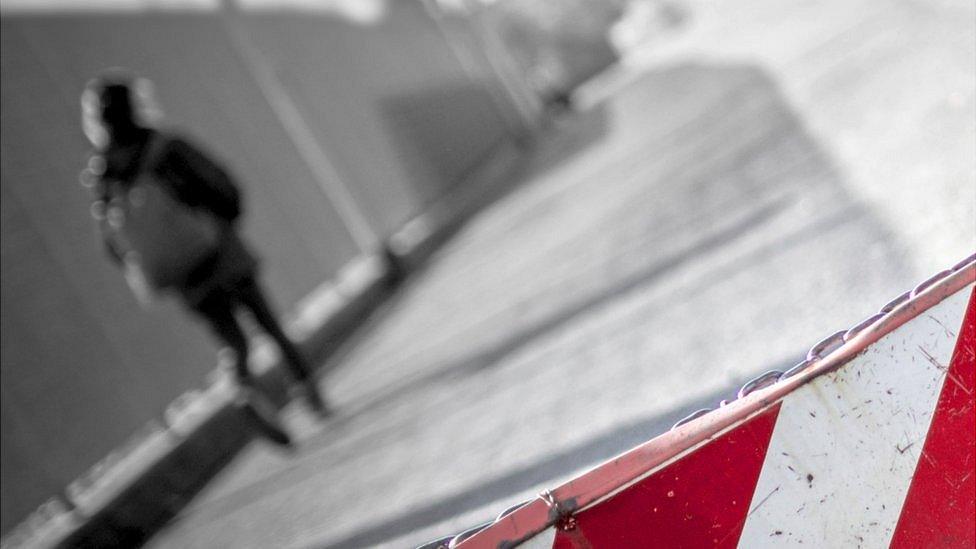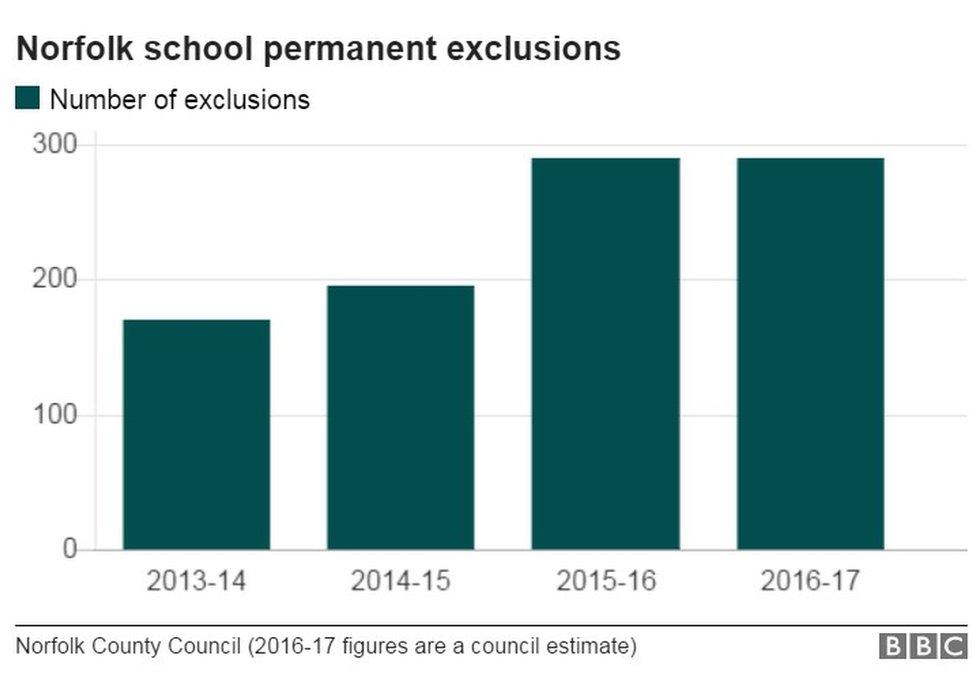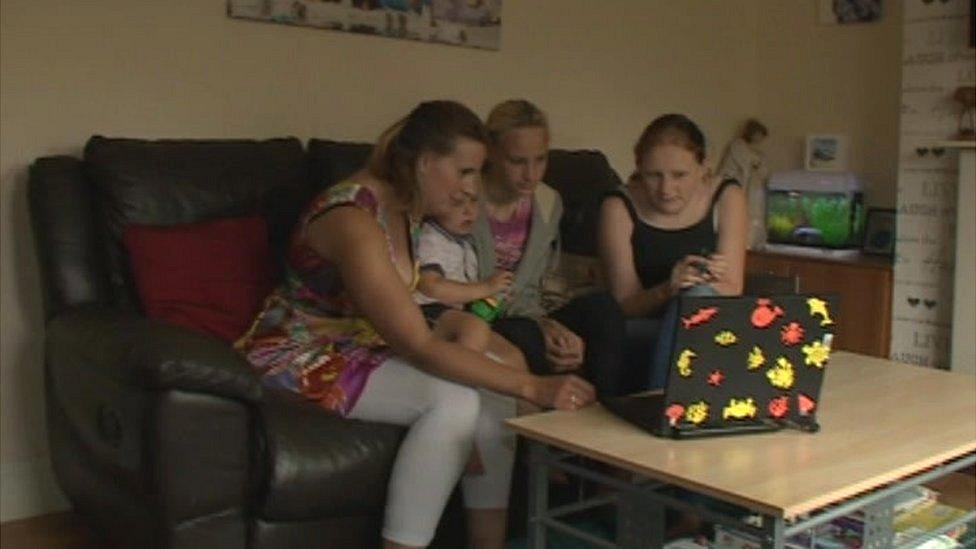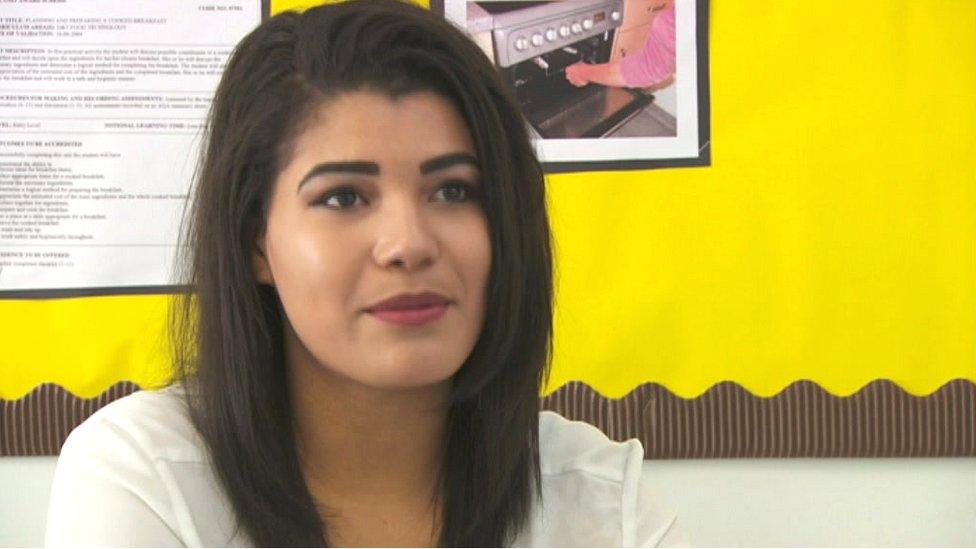Norfolk has 140 pupils 'not getting a school education'
- Published

A Norfolk County Council report says it expects 290 pupils to be excluded this year
More than 140 children are not getting a school education after exclusions hit a record high in Norfolk, it has emerged.
Council figures show 290 pupils were barred in 2015-16, with numbers set to remain the same in 2016-17.
The BBC has been told many of the 140 Norfolk children not in schools are being tutored online and at home.
North Norfolk MP Norman Lamb said it was "shameful". The council said it was funding extra places.
A report, external to Norfolk County Council's children's services committee said there were concerns exclusion were not being used as a "last resort" and instead as a "mechanism for fairly low level behavioural issues".

Des Reynolds, chief executive of not-for-profit charity Engage Trust, which finds places for excluded pupils at its 10 short stay schools in Norfolk, said: "Currently, the system for providing places for challenging and vulnerable children is under an enormous amount of pressure and there is a shortage of places.
"If children and young people are not in school, that places them in a detrimental position. It's very important that the authorities work together to find a solution."

Case study: The Knight Family

Holly and Cacey-Jane's mother Elizabeth Knight worked as a teaching assistant
Holly Knight, 14, from North Walsham, has not been at school since February after being excluded over behavioural issues.
"I would have a panic attack and I would start screaming and shouting and just saying I don't like it - and even say I'd rather die than go to school sometimes," she said.
Her mother Elizabeth Knight said she has been bullied, is often anxious and is being assessed for Asperger's syndrome.
She said Holly's sister, Cacey-Jane, 16, has epilepsy.
Ms Knight said Casey-Jane had been "signed off" rather than excluded, but the result was the same - she had to complete her education through online learning at home.
She said: "I mean I'm quite a pushy parent in the sense that I want education to be quite important in their lives. Even if they're not high flyers it should still be important, but it's been the most stressful time."
Ms Knight said had left her job as a teaching assistant to look after her daughters.
In the last few days, Holly has been given a place at a short stay school from September. Her sister hopes to go to college.

Mr Lamb, a Liberal Democrat MP, said: "I think it is a shameful situation we have in Norfolk.
"I don't underestimate the challenge some pupils present to schools but I am acutely aware that the consequences of permanent exclusions are so dire.

Pupils can be excluded for fighting and swearing
"Norfolk has a legal obligation to every child to bring down those appalling numbers."
Figures for 2014/15 show there were 5,800 exclusions nationally, external.
A Norfolk County Council spokeswoman said: "We commission 290 places per year for pupils who have been permanently excluded, through the Short Stay School for Norfolk. We are aware of a capacity issue and have now commissioned extra funded places.
"We are also working with head teacher associations to reduce exclusions through a new 'managed move' process."
Scott Lyons, of the National Union of Teachers (NUT), said he believed 142 pupils were going without education with excluded pupils from as young as six years to 16.
He said the NUT recognised that teacher should be protected and some pupils needed to be excluded, but he said the "state also has a duty to children".
The Department for Education said: "Permanent exclusion should only be used as a last resort.
"There are also clear duties in place to ensure suitable, full-time education is put in place for excluded children. We are raising the standards of this alternative provision to ensure every child is given the support they need to achieve their potential."
- Published6 October 2016
